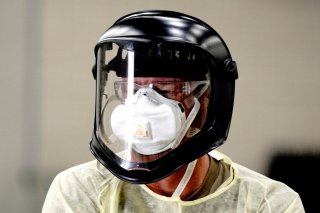Winter Coronavirus Surge to Be ‘Worst Event That This Country Will Face’
Birx called on all Americans to change their behavior ahead of Christmas and New Year’s, adding that at this point “we know what behaviors spread the virus and we know how to change those behaviors.”
The aftermath of the unrelenting coronavirus surge seen across the United States is expected to be one of the most difficult events in the history of the country, according to Dr. Deborah Birx, the White House coronavirus response coordinator.
“This is not just the worst public health event. This is the worst event that this country will face, not just from a public health side,” she said in an interview Sunday on NBC’s Meet the Press.
“This fall/winter surge is combining everything that we saw in the spring with everything we saw in the summer—plus the fall surge going into a winter surge.”
Dr. Robert Redfield, the director of the U.S. Centers for Disease Control and Prevention, shared similar sentiments last week.
“The reality is December and January and February are going to be rough times,” he said. “I actually believe they’re going to be the most difficult in the public health history of this nation, largely because of the stress that’s going to be put on our health-care system.”
Within recent weeks, the ten-month-long pandemic has only gained momentum to infect and kill a record number of people on a daily basis. For the first time, the United States is reporting a weekly average of more than two thousand coronavirus-related deaths per day, according to data from Johns Hopkins University.
A new concern that has taken on an added sense of urgency is related to hospitals that are already at full capacity trying to admit even more sick patients. As of Saturday, more than a hundred thousand people in the United States were hospitalized due to coronavirus, according to the COVID Tracking Project.
Birx called on all Americans to change their behavior ahead of Christmas and New Year’s, adding that at this point “we know what behaviors spread the virus and we know how to change those behaviors.”
“We cannot go into the holiday season, Christmas, Hanukkah, Kwanza, with the same kind of attitude, that those gatherings don’t apply to me. They apply to everybody,” she said.
“If you do not want to lose your grandparents, your aunts, let’s be clear: If you’re over seventy, 20 percent of those over seventy who contract COVID are hospitalized, and still, 10 percent of them are lost. So, if you have anyone in your family with comorbidities or over seventy, you cannot do those things. You cannot gather with your mask off, you cannot hug and kiss people outside.”
Birx acknowledged that promising vaccines are on the way, but she admitted that many of the most vulnerable Americans won’t receive the vaccine doses until February.
“So, we need to do this now,” she said. “Yes, the nursing homes will be vaccinated, but there are a hundred million Americans that have these comorbidities that put them at substantial risk.”
Ethen Kim Lieser is a Minneapolis-based Science and Tech Editor who has held posts at Google, The Korea Herald, Lincoln Journal Star, AsianWeek, and Arirang TV. Follow or contact him on LinkedIn.

